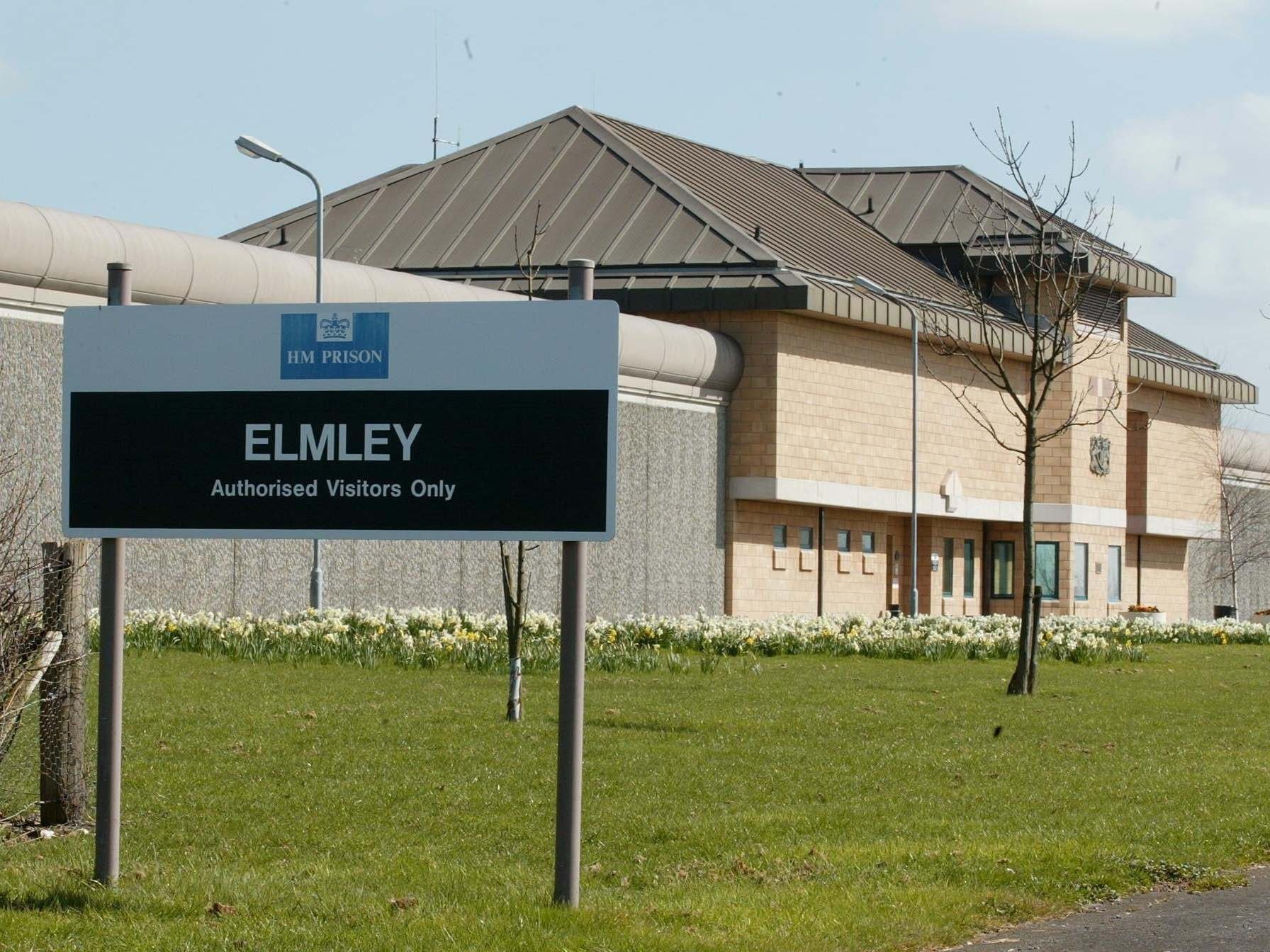Almost a quarter of HMP Elmley's inmates test positive for illegal drugs
Inspection of Kent jail reveals safety concerns

Your support helps us to tell the story
From reproductive rights to climate change to Big Tech, The Independent is on the ground when the story is developing. Whether it's investigating the financials of Elon Musk's pro-Trump PAC or producing our latest documentary, 'The A Word', which shines a light on the American women fighting for reproductive rights, we know how important it is to parse out the facts from the messaging.
At such a critical moment in US history, we need reporters on the ground. Your donation allows us to keep sending journalists to speak to both sides of the story.
The Independent is trusted by Americans across the entire political spectrum. And unlike many other quality news outlets, we choose not to lock Americans out of our reporting and analysis with paywalls. We believe quality journalism should be available to everyone, paid for by those who can afford it.
Your support makes all the difference.Nearly one in four prisoners at a Kent prison failed random drug tests, inspectors have warned.
Some 22 per cent of inmates tested positive during mandatory screening at HMP Elmley, a large category B jail on the Isle of Sheppey.
Almost half said it was ”easy” to get illegal drugs while behind bars.
Inspectors carried out unannounced visits to the prison in April and May but found there was “no comprehensive drug supply reduction strategy”.
They also concluded the prison was not as safe as it had been over the past four years and that inexperienced staff were not challenging bad behaviour.
HMP Elmley holds around 1,100 prisoners with a “significant number of foreign nationals and sex offenders”, according to the latest report from the HM Inspectorate of Prisons.
There had been two suicides since the last inspection in 2015 but “care for those in crisis or at risk of self-harm was reasonably good”.
In his report, chief inspector of prisons Peter Clarke said: “Despite nearly half of prisoners telling us that it was easy to obtain illicit drugs in the prison, and 22 per cent testing positive during random mandatory drug tests, there was no comprehensive drug supply reduction strategy. Intelligence was not being used as well as it should have been, and there had been hardly any intelligence-led drug tests carried out, despite the ready availability of such intelligence.
“Although levels of violence were lower than in similar prisons, a quarter of prisoners still told us they felt unsafe. To address this, the prison should conduct more thorough investigations into violence when it occurs and gain an understanding of what is driving it.”
Mr Clarke said the the prison was “not without hope” as weaknesses were “clearly understood” by bosses who had plans to tackle the concerns.
Phil Copple, director general for prisons, said: “It is clear there is still work to be done at Elmley, particularly to prevent drugs getting in, but I am pleased inspectors have confidence in the ability of the governor and his staff to drive improvements. An extra £100m is being invested to improve security across the estate. A new head of drug strategy in Elmley will tackle drugs using sniffer dogs and search teams.
“Thorough investigations into violence will be conducted to learn lessons from every incident, boosting the experience of staff and making the prison safer.”
Meanwhile prisoners at HMP Moorland are being allowed to call the Samaritans from their cells amid concerns over a rising number of self-harm incidents, from 451 in the year ending March 2017 to 755 this year
The number of assaults on staff has also leapt from 66 in 2016-17 to 119 in 2018-19, according to the independent monitoring board’s annual report.
The category C male resettlement prison near Hatfield Woodhouse in South Yorkshire – which also acts as a young offender institution – holds around 1,000 inmates.
The IMB said: “The big increase in incidents of self-harm is a cause for concern, but it is hard to know whether this may, in part, result from better monitoring and recording. Violence against prisoners and staff peaked in the summer of 2018, but there appears to have been a downward trend since then, which tends to confirm the IMB’s sense that the prison is becoming calmer and safer.”
Press Association
Join our commenting forum
Join thought-provoking conversations, follow other Independent readers and see their replies
Comments